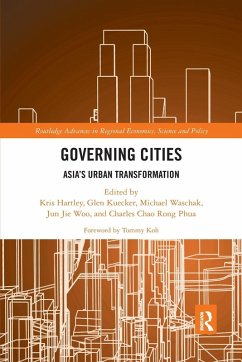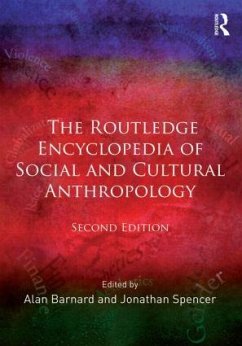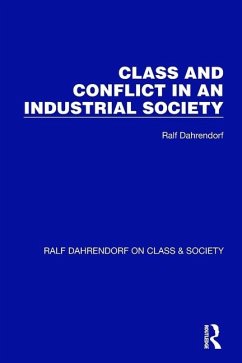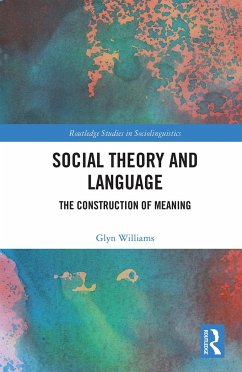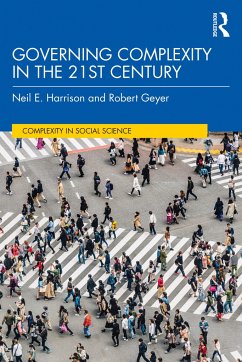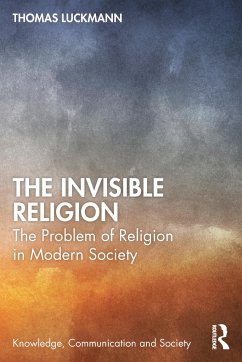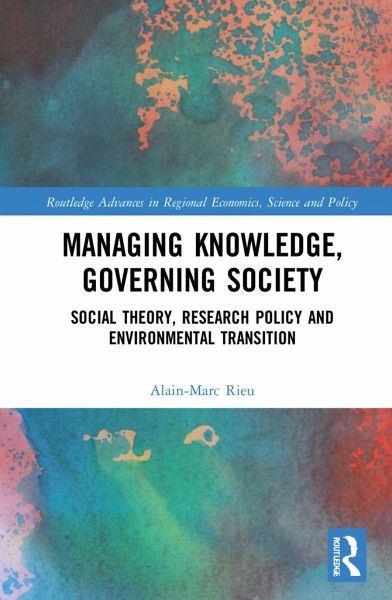
Managing Knowledge, Governing Society
Social Theory, Research Policy and Environmental Transition
Versandkostenfrei!
Versandfertig in 6-10 Tagen
45,99 €
inkl. MwSt.
Weitere Ausgaben:

PAYBACK Punkte
23 °P sammeln!
Since the 1980s, two different paradigms have reshaped industrial societies: the Neoliberal paradigm and a Research and Innovation paradigm. Both have been conceptualized and translated into strong policies with massive economic and social consequences. They provide divergent responses to the environmental transition. The Neoliberal paradigm is based on economic models and geopolitical solutions. The Research and Innovation paradigm's goal is to manage knowledge differently in order to reorient the evolution of society. Since the mid-1990s, a version of the Research and Innovation paradigm has...
Since the 1980s, two different paradigms have reshaped industrial societies: the Neoliberal paradigm and a Research and Innovation paradigm. Both have been conceptualized and translated into strong policies with massive economic and social consequences. They provide divergent responses to the environmental transition. The Neoliberal paradigm is based on economic models and geopolitical solutions. The Research and Innovation paradigm's goal is to manage knowledge differently in order to reorient the evolution of society. Since the mid-1990s, a version of the Research and Innovation paradigm has led to the design of large-scale research and innovation policies. This book examines how these policies have evolved and how they can be extended and reformed to respond to present and future environmental constraints. It studies the mutation of the conception, organization and role of science and technology in the evolution of industrial societies and explores the future of these developments.
The book offers three unique lines of enquiry. The first is to focus not specifically on economics, sociology, political science or history, but on knowledge creation from an institutional and reflexive point of view. The second is to establish a convergence between the British school of science and technology studies and the research trends opened by the work of Michel Foucault. Both introduced trans-disciplinary and policy-oriented research associating case studies, long-term perspectives and theory. The third is to consider climate change as the overwhelming challenge of our time.
The book is an insightful guide for students, scholars and researchers across the humanities and social sciences, including philosophy, political science, law, economics, business and media.
The book offers three unique lines of enquiry. The first is to focus not specifically on economics, sociology, political science or history, but on knowledge creation from an institutional and reflexive point of view. The second is to establish a convergence between the British school of science and technology studies and the research trends opened by the work of Michel Foucault. Both introduced trans-disciplinary and policy-oriented research associating case studies, long-term perspectives and theory. The third is to consider climate change as the overwhelming challenge of our time.
The book is an insightful guide for students, scholars and researchers across the humanities and social sciences, including philosophy, political science, law, economics, business and media.









